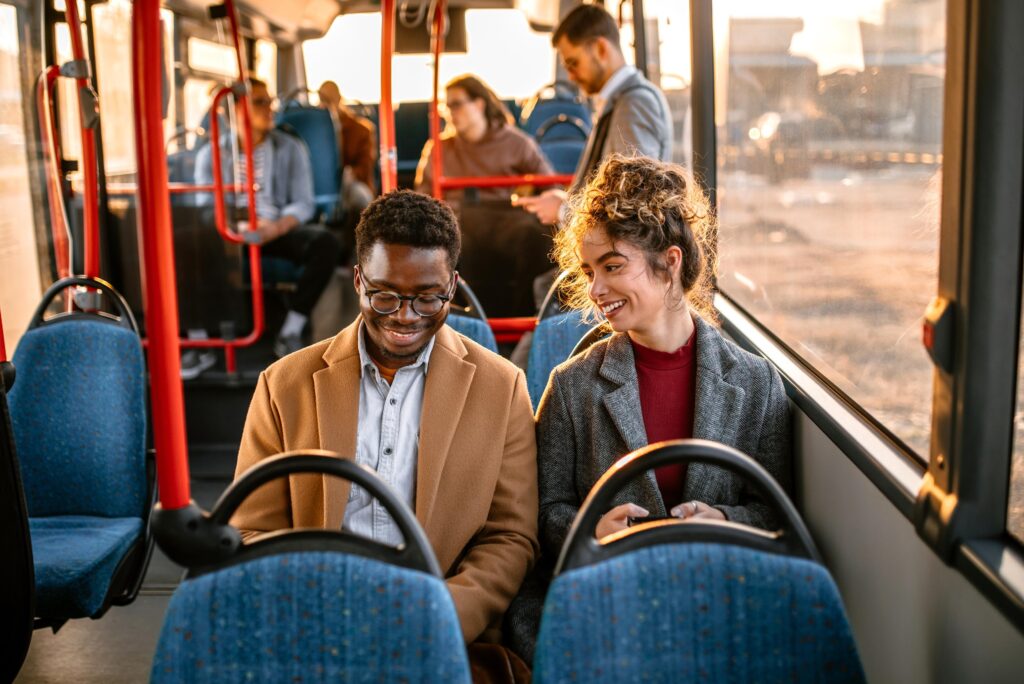Kuala Lumpur’s 2040 Transport Transformation: Steering Towards a Sustainable Urban Future
In a landmark move to redefine urban mobility, Malaysian Prime Minister Anwar Ibrahim has introduced an extensive strategic plan aimed at revolutionizing Kuala Lumpur’s transportation framework by the year 2040. This visionary initiative focuses on reducing the city’s heavy reliance on private cars and fostering a dynamic, efficient public transit ecosystem. Addressing pressing issues such as worsening traffic jams, escalating pollution levels, and unchecked urban expansion, the blueprint sets out to position public transportation as the cornerstone of Kuala Lumpur’s sustainable development.
Reimagining Urban Mobility: The Core Pillars of Anwar Ibrahim’s Public Transit Strategy
The Prime Minister’s comprehensive roadmap outlines several transformative measures designed to overhaul Kuala Lumpur’s transport network. Central to this vision is enhancing accessibility and convenience through:
- Rail Network Expansion: Upgrading and extending Light Rail Transit (LRT) and Mass Rapid Transit (MRT) lines will bridge connectivity gaps in underserved neighborhoods, ensuring equitable access across the metropolitan area.
- Eco-Friendly Bus Services: Deploying an expanded fleet of electric and hybrid buses with increased frequency aims to provide reliable alternatives that discourage private vehicle use.
- Smart Mobility Integration: Leveraging cutting-edge technologies such as AI-powered real-time tracking apps and contactless ticketing systems will streamline user experience while optimizing operational efficiency.
- Sustainable Active Transport Infrastructure: Developing dedicated pedestrian zones alongside safe cycling lanes encourages healthier travel habits while reducing carbon footprints.
This multifaceted approach not only targets congestion relief but also seeks to cultivate a cultural shift where public transit becomes the preferred mode for daily commutes. To illustrate anticipated impacts based on current modeling data from similar global initiatives—such as Singapore’s recent MRT expansions—the following table summarizes expected outcomes for Kuala Lumpur:
| Initiative | Projected Impact by 2040 |
|---|---|
| LRT & MRT Extensions | A 45% increase in average daily ridership across rail networks |
| Sustainable Bus Fleet Deployment | A 35% decline in private car journeys during peak hours |
| User-Centric Smart Systems Implementation | An estimated 25% reduction in commuter wait times due to optimized scheduling |
| Cycling & Walking Infrastructure Enhancement | Doubled rates of non-motorized commuting among residents within five years post-implementation |
Paving the Way Forward: Strategic Steps for Expanding Public Transportation Networks in Kuala Lumpur
Kuala Lumpur’s ambitious blueprint hinges on several critical strategies designed to build an integrated transport system that meets future demands efficiently. These include:
- Sustained Investment into Rail Infrastructure: Prioritizing capital allocation towards expanding LRT/MRT coverage ensures comprehensive service reach throughout suburban districts currently lacking adequate transit options.
- Create Seamless Multimodal Connectivity: Establishing smooth interchanges between buses, trains, ferries, and emerging micro-mobility services like e-scooters enhances overall accessibility for commuters navigating diverse routes.
- Digi-Enabled User Experience Enhancements: Introducing unified digital platforms offering real-time updates on schedules, delays, fare payments via mobile wallets or smart cards simplifies journey planning significantly.
- Cultivating Walkable Neighborhoods & Cycling Culture: Designing urban spaces with pedestrian priority zones coupled with protected bike lanes promotes active travel modes aligned with health-conscious lifestyles.
- (New Addition):
Tapping into Renewable Energy Sources for Transit Operations — Incorporating solar-powered stations or electric bus charging hubs reduces environmental impact further while aligning with Malaysia’s commitment under its Nationally Determined Contributions (NDCs).
The success of these initiatives depends heavily on collaborative engagement among government bodies at federal and municipal levels alongside community stakeholders including local businesses and civil society groups. A phased timeline highlights key milestones anticipated over the next two decades based on current project schedules announced by relevant authorities:
| Target Year | Key Milestone |
|---|---|
| < strong > Enhanced Public Transportation strong > th>n < th>< strong > Increased Private Vehicle Usage strong > th>n < / tr>n < /thead>n < tbody>n < tr>< t d > Traffic Congestion t d >< t d Significantly Alleviated t d >< t d Exacerbated t d < / tr > < tr > /tbody> /table> A Glimpse Ahead: Shaping Kuala Lumpur Into A Model Of Sustainable Urban Living By Mid-Century
Anwar Ibrahim’s unveiling marks more than just infrastructure upgrades—it signals a paradigm shift towards environmentally responsible urban planning centered around people rather than cars. The success hinges upon cohesive partnerships spanning governmental agencies, planners , citizens , business sectors , and technology innovators . As Malaysia embraces this forward-looking agenda , it positions itself alongside global cities championing climate resilience through smarter mobility solutions . With ongoing monitoring , adaptive management , plus community involvement integral throughout implementation phases , this bold vision promises transforming Kuala Lumpur into a vibrant metropolis defined by sustainability , inclusivity , and livability . Residents nationwide eagerly anticipate witnessing how these transformative policies unfold over coming decades — ultimately setting new benchmarks within Southeast Asia ’ s rapidly evolving urban landscape . |
